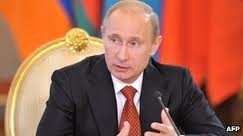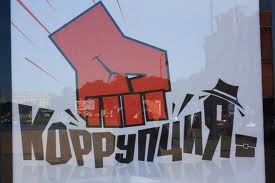Russia and Corruption: Moving Forward, Backwards or Side-Stepping (Part I of II)
 My heritage is Russian; I know how Russians think and what makes them tick. Like its literary history, Russians are complex. If you try to generalize, or underestimate them, they will make mincemeat out of you. Businesses which are interested in entering Russia face a difficult environment, with huge upside potential and equal amounts of risks.
My heritage is Russian; I know how Russians think and what makes them tick. Like its literary history, Russians are complex. If you try to generalize, or underestimate them, they will make mincemeat out of you. Businesses which are interested in entering Russia face a difficult environment, with huge upside potential and equal amounts of risks.
The political atmosphere in Russia is shifting. Politics surrounding corruption is riddled with differing messages. One the one hand, the political elite is now being threatened. Putin’s deal with the elite is being renegotiated. Originally, Putin embraced a political elite with economic oligarchs, who enriched themselves at the expense of the Russian economy, as part of an equation of stability which Putin needed to consolidate power.
Putin is now using the battle against corruption as a means to purge some of the ruling elite and bring about a new party consolidation.
In recent months, Putin has used anti-corruption legislation to restrict the ability of government officials to own foreign assets, to strip immunity from prosecution for Duma deputies; and to enactment strong anti-corruption legislation. Putin’s actions led to the resignation of his defense minister, and the recent resignation of the chair of the Ethics Committee from the State Duma after it was revealed that he owned undeclared real estate holdings in Miami and other locations. Two other lawmakers resigned after it was learned they had undisclosed real estate holdings outside of Russia. The number of resignations is increasing as more officials and legislators are falling under the anti-corruption sword.
Some have dismissed these moves as window dressing but that ignores the rising public discontent in Russia over the economy and corruption. Russia continues to land in the trenches of corruption rankings – it received a ranking of 133 in the 2012 Transparency International Corruption Perception Index. Despite the high level of corruption, Russia’s economy continues to grow – in 2012, it grew by 3.6 percent and unemployment is 6 percent nationwide.
Two significant strains of politics are combining and may result in a huge political shift in Russia. The public does not like the political and ruling elite which are robbing the country of its wealth while economic disparities continue to grow in society. Putin recognizes that the unscrupulous behavior of government officials could destabilize his power and control over the government.
In response, Putin also realized that he could use the anti-corruption issue to consolidate his power and shift the political equation to respond to potential public discontent, preserve his control even further, and unleash the Russian economy which is poised to grow even more. The formation of a new political reality has begun and anti-corruption forces may be harnessed to help in the political realignment.
 Putin promoted the repatriation of the elite’s assets out of national security concerns. Putin was concerned that the West was gaining an ability to influence Russia’s elite through the control of their assets.
Putin promoted the repatriation of the elite’s assets out of national security concerns. Putin was concerned that the West was gaining an ability to influence Russia’s elite through the control of their assets.
Russian political experts expect a huge political shift in the coming year as Putin plays his hand and builds a new ruling structure.















